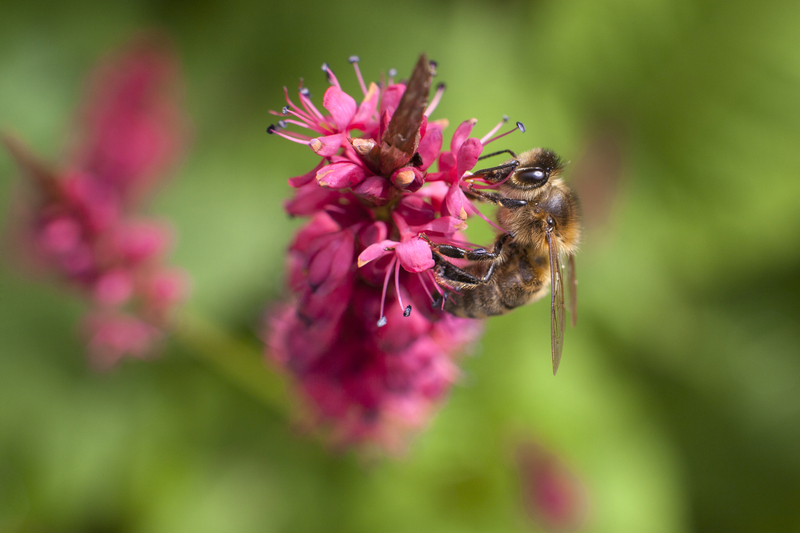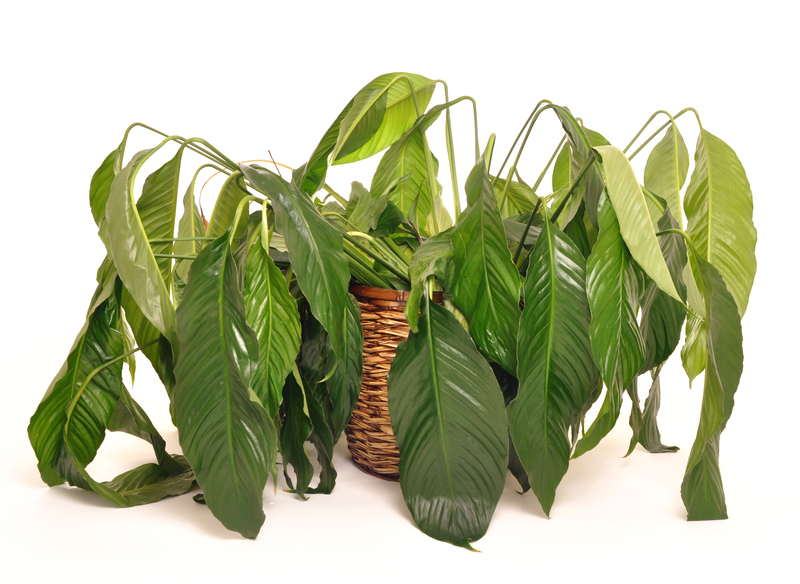Hedge Trimming Mastery: Exploring New Shapes and Methods
Posted on 03/07/2025
Hedge Trimming Mastery: Exploring New Shapes and Methods
Transforming your garden from ordinary to extraordinary starts with the right approach to hedge trimming. In the modern landscape of gardening, hedge trimming mastery goes well beyond mere maintenance. It's an art form that requires a thoughtful blend of creativity, skill, and technique. Whether you are a homeowner looking to refresh your outdoor space, a professional landscaper pursuing innovative methods, or an avid gardener who wants to dive deeper into hedge shaping, this comprehensive guide will equip you with proven strategies and fascinating new trends in the world of hedge care.
Why Mastering Hedge Trimming Matters
Neat, well-shaped hedges can instantly elevate the curb appeal and overall aesthetics of any property. Mastery over advanced hedge trimming techniques brings several advantages:
- Enhanced Visual Appeal: Structured hedges create a clean, professional look.
- Healthier Plants: Correct cutting encourages dense growth and reduces disease.
- Creative Expression: Artistic shapes and forms offer unique landscaping possibilities.
- Effective property boundaries and privacy screens when hedges are kept in optimal form.
In this article, we will explore both traditional and trending hedge trimming shapes, essential techniques, necessary tools, best practices for plant health, and innovative approaches for modern gardens.

Understanding the Basics of Hedge Trimming
1. Hedge Varieties: Choosing the Best for Your Needs
Before delving into advanced hedge shaping, it's important to start with the right plants. Popular hedge species include Buxus (Boxwood), Thuja (Arborvitae), Taxus (Yew), and Ligustrum (Privet). Each variety offers unique growth habits and foliage that affect the ultimate appearance and structural integrity after trimming.
- Evergreen Hedges: Maintain color year-round, suitable for formal and informal shapes.
- Deciduous Hedges: Offer seasonal changes, can be shaped into everything from simple forms to elaborate artwork.
2. Timing: When to Trim for Optimal Results
Hedge pruning timing can significantly impact plant health and shape. For most species:
- Prune evergreens in late spring or early summer after new growth.
- Trim deciduous hedges during late winter or very early spring while dormant.
- Light shaping can be done throughout the growing season to maintain crisp lines.
Essential Tools for Hedge Trimming Excellence
Investing in the right hedge trimming tools is vital for safety, efficiency, and achieving crisp, clean shapes. The essentials include:
- Manual Hedge Shears: Offer precise control for detailed shaping and smaller hedges.
- Electric or Battery Hedge Trimmers: Ideal for larger hedges and uniform cuts.
- Pole Pruners: Extend reach for tall or wide shrubs.
- Sharp secateurs for detailed and careful work on delicate foliage.
- Measuring tape, string lines, stakes, and templates for consistent shapes.
- Protective gloves and safety goggles for personal protection.
Sharpness and maintenance of all tools are essential for effective hedge shaping and plant health.
Classic and Modern Hedge Shapes Explored
Mastery of hedge trimming begins with understanding the basic hedge shapes and then pushing beyond into new trends. Below, we explore timeless styles and innovative hedge shaping methods that have found fans among gardeners and designers worldwide.
Traditional Hedge Shapes
- Rectangular (Box): The most common and formal shape, perfect for neat borders and property lines.
- Rounded: Softens the appearance of the garden and works well with both formal and informal styles.
- A-frame: Tapered sides that are wider at the base, allowing optimal sunlight exposure to all foliage.
- Topiary: Intricate forms such as balls, spirals, animals, and geometric designs.
Contemporary and Artistic Hedge Shapes
- Cloud Pruning (Niwa-gi): A Japanese-inspired technique creating puffy, cloud-like forms with layered spherical clusters.
- Wave Pattern Edges: Undulating lines along the top or sides of the hedge, adding organic flow to paths and borders.
- Archways and Living Tunnels: Stunning living pathways that invite exploration and offer dramatic garden entrances.
- Sculptural Abstracts: Freeform shapes that disregard symmetry for a modern, artistic effect.
- Mosaic and Pixel Hedges: Using varied foliage and colored leaves to create images, text, or patterns within the hedge.
Each shape offers unique maintenance requirements, and advanced shapes require thoughtful planning, patience, and mastery of trimming techniques.
Step-by-Step Guide: Achieving Expert Hedge Trims
Preparation: Setting Up for Success
- Choose a dry, overcast day to minimize plant stress and improve visibility.
- Inspect all tools for sharpness and cleanliness.
- Clear the area of debris, toys, or obstacles for safety during trimming.
- Lay down tarps to collect clippings and ease cleanup.
- Set string lines or use wooden templates if precise geometric shapes are desired.
Methodical Cutting Techniques
- Start from the Bottom: Begin trimming at the base and move upward for better perspective and control.
- Keep Blades Parallel: Hold blades or trimmers parallel to the surface for uniform cuts.
- For box shapes, trim the sides first, then the top, always working each face evenly.
- Taper the Sides: Maintain a slight A-frame profile so lower branches receive light and stay healthy.
- Step Back Frequently: Regularly observe your work from different angles to catch errors and ensure symmetry.
Practice and patience are crucial. Hedge trimming mastery develops with time and hands-on experience.
Precision Topiary and Artistic Shapes
Advanced shaping and modern hedge trimming methods demand extra planning:
- Start with a young but established hedge for easier shaping.
- Use wire frames or wooden guides for complex forms.
- Prune lightly and frequently rather than removing large amounts at once.
- Slow growth species like boxwood retain intricate shapes better than fast-growing shrubs.
- Keep clippers extra sharp for clean, precise edges on topiary forms.
Advanced Techniques for Hedge Trimming Mastery
1. Espalier and Pleaching
Espalier involves training branches along a flat frame or wall, usually into horizontal tiers. Pleaching is similar but creates living fences by intertwining branches of separate plants. Both methods require:
- Regular pruning and tying to guide growth.
- A strong frame or support system in the early years.
- Patience--these techniques often take years to reach their full effect.
2. Cloud Pruning and Niwaki
Originating in Japanese gardens, cloud pruning and niwaki focus on naturalistic, layered forms. Important steps include:
- Thinning interior branches to create negative space and highlight cloud-like tufts.
- Pruning little and often to maintain soft, organic shapes while encouraging strong, healthy growth.
- Embracing imperfection for a more natural look rather than rigid symmetry.
3. Hedge Sculpting with Power Tools
- Modern battery-powered trimmers and sculpting attachments allow for faster, cleaner, and more intricate designs.
- Use lightweight, maneuverable trimmers for precise work on topiary and abstract shapes.
- Always wear protective gear--sculpting acrobatics can risk injury.
Maintaining Healthy, Long-lasting Hedge Designs
Artistic and modern hedge shapes are only successful when backed by good horticultural care. Here are essential hedge maintenance tips:
- Feed and Mulch: Use balanced fertilizer and organic mulch to support lush, healthy foliage.
- Water deeply during dry spells--especially vital for newly shaped topiary forms.
- Inspect regularly for pests, fungal infections, or gaps in growth and address promptly.
- Prune out dead, diseased, or crossing branches to keep the hedge healthy and attractive.
- Resist heavy pruning in very harsh or hot weather, as this may stress plants.
- Monitor sun exposure: If a hedge is shaded on one side, rotate or prune surrounding plants to improve light.
Emerging Trends in Hedge Trimming and Shaping
Hedge trimming mastery is continually evolving as gardeners and landscapers experiment with new approaches and technologies:
- Sustainable shaping using native species for wildlife-friendly and low-maintenance hedges.
- Green walls and vertical hedge installations for urban spaces.
- Smart hedge trimmers with laser guidance for perfect symmetry.
- Collective art installations where communities create themed hedge sculptures.
- Incorporating edible hedges (herbs, berry shrubs) into ornamental borders.

Frequently Asked Questions About Hedge Trimming
How often should I trim my hedges?
Most hedges benefit from two to three light trims per year during the growing season, with one major shaping annually.
What's the easiest shape for beginners?
Rectangular or softly rounded shapes are ideal for beginners--they require less precision and are forgiving if mistakes are made.
How can I fix uneven hedges?
Use string lines for guidance and trim lightly over several sessions rather than attempting to correct everything at once.
Are there eco-friendly hedge trimming practices?
Yes! Leave some sections untrimmed for wildlife, compost your clippings, and choose native, low-maintenance plants to reduce chemical fertilizer needs.
Conclusion: The Future of Hedge Trimming Mastery
As you explore new hedge trimming methods and shapes, remember that every garden offers countless possibilities for creative and functional design. Whether you prefer the classical elegance of topiary or the modern artistry of cloud pruning, practice and patience are essential to achieving expert results.
Hedge trimming mastery is about more than just sharp lines--it's about expressing your love for nature and design. So pick up your shears, try a new shape, and take your garden to the next level!
Latest Posts
Biological Recycling: Waste to Enriched Soil
Design the Perfect Garden Relaxation Zones
The Art of Vertical Gardening Design



